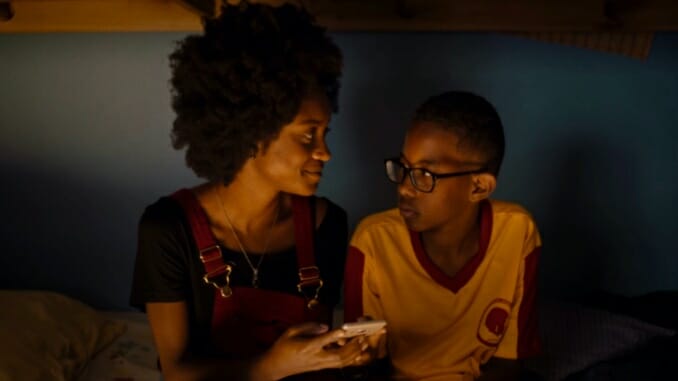Exceptional Family Drama and Lesbian Romance Mars One Fights for Kindness

“Did you know the sun we’re seeing now is the sun of the past?” In writer-director Gabriel Martin’s sensitive, sincere family drama Marte Um (Mars One), teenage Deivinho (Cícero Lucas) makes this nerdy observation to two friends who are more interested in playing chicken than indulging Devinho’s closeted obsession with astrophysics. It’s one of many fervent thoughts that stands as a representation of Deivinho’s setting: Brazil on the night of Jair Bolsnaro’s presidential win and subsequent installation. The audience already knows that things are about to get materially worse for a working class family like Deivinho’s, and even though the film is grounded in 2018’s relatively recent reality, watching their bad luck unfold sometimes feels like a prophetic dream.
Joining Deivinho as the film’s center are his near-college-graduate sister Eunice (Camilla Damião), janitor father Wellington (Carlos Francisco), and part-time housekeeper mother Tércia (Rejane Faria). The foursome are the main solar system of the film, and Martin does an impressive job of fully developing each character so that their conflicts, closeness, and resolutions all feel integral and earned.
-

-

-

-

-

-

-

-

-

-

-

-

-

-

-

-

-

-

-

-

-

-

-

-

-

-

-

-

-

-

-

-

-

-

-

-

-

-

-

-








































